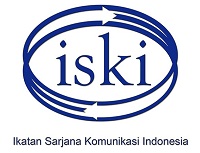Sistem Media Massa Indonesia di Era Reformasi: Perspektif Teori Normatif Media Massa
Abstract
Keywords
Full Text:
PDF (Bahasa Indonesia)References
Mc. Quail, Dennis. 1987. Mass Communication Theory, An Introducton. Baverly Hills,California: Sage Publication.
Nur Hidayat, Deddy. 1996 “Politik Media dan Krisis Sistem Komunikasi,” Kompas, 27 Juni.
Siebert, F. Peterson, T., and W. Schramm. 1956. Four Theories of The Press. Urbana: University of Illionis Press.
Jurnal ISKI, Volume I, 1998.
DOI: https://doi.org/10.29313/mediator.v7i1.1224
Refbacks
- There are currently no refbacks.

This work is licensed under a Creative Commons Attribution 4.0 International License























